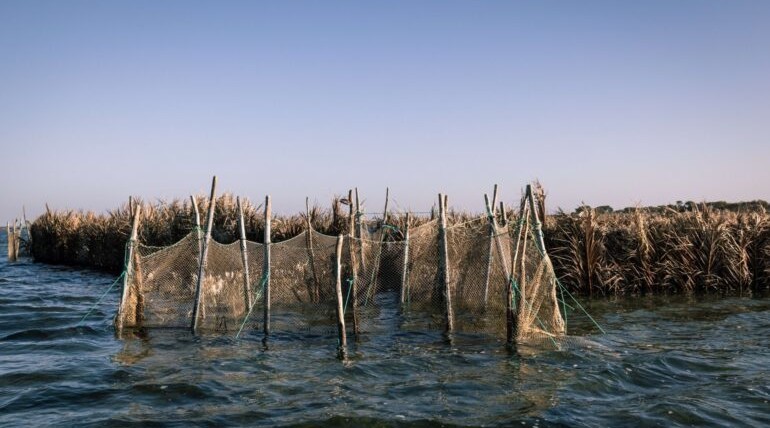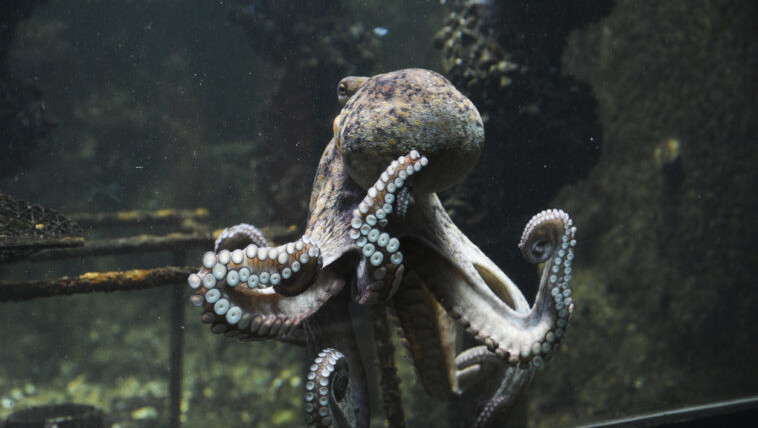This large island in the Indian Ocean is one of the poorest in Africa, where the majority of its population lives off the land or sea.
Like many other countries in the region, Madagascar is experiencing the effects of climate change.
UN Info’s Daniel Dickinson visited the village of Mokala, in the Anosy region, where he spoke with the President of the local fishermen’s association, Gaston Imbola, and Valencia Assanaly, National Coordinator of ILO Eco-Lobster South project.
Gaston Imbola: It is becoming more and more dangerous to fish in these waters as the winds become stronger and the weather is less predictable. People have died because their traditional wooden canoes capsized in the ocean. Just a week ago, three fishermen from another village were rescued off our coast after getting into difficulty. Two were extremely weak.
Valencia Assanaly: Climate change has a considerable impact on fishing in this region. An increase in sea temperature and a decrease in precipitation cause stronger winds, which translates into large waves and more dangerous sea conditions for fishermen.
Gaston Imbola: Before, we could fish around 20 days per month, but with stronger and more difficult winds, it is now between 11 and 15. I am not very attached to the conditions but sometimes I take risks because I I need to feed my family.
Valencia Assanaly National Coordinator of the ILO Eco-Lobster South Project, in Madagascar.
FAO Madagascar/Tojotiana Randrianoavy
Valencia Assanaly National Coordinator of the ILO Eco-Lobster South Project, in Madagascar.
Valencia Assanaly: At the ILO, we recognize that fishermen like Gaston need support. So we help them both diversify their sources of income, but also fish more safely, which involves collaborating on digital early warning systems that highlight dangerous sea conditions.
Gaston Imbola: In the past, our tradition was to listen to the wind and observe the sea the day before leaving for a fishing trip. But now, detailed information on wind direction and wave size can be obtained by calling a dedicated fishermen information service. This helps us decide whether or not it is safe to fish. So this morning we are going fishing because there is an orange alert which means caution, but this afternoon the conditions will deteriorate and there is a red alert which means it is too dangerous to go out.
Valencia Assanaly: The ILO supported the digitalization of the early warning system so that fishermen could receive information via SMS. We also provide expertise on the diversification of sources of income, in particular the strengthening of practices in fishing sectors, other than lobster, which currently constitutes the main source of income for the community. While one of our primary goals is to strengthen the capacity, profitability and sustainability of the lobster fishery, we recognize that diversification is important because it allows fishermen to be more resilient to the types of negative climate change that we observe.
Gaston Imbola: The lobster season extends from April to December, which coincides with some of the worst weather conditions at sea. There are 98 fishing families in this village which has around 800 inhabitants and together, during last season, we caught 10 tonnes in nine months. Lobster sells at a good price, which is a big advantage for the village.
Weather conditions in southern Madagascar are becoming increasingly unpredictable due to climate change.
UN News/Daniel Dickinson
Weather conditions in southern Madagascar are becoming increasingly unpredictable due to climate change.
Valencia Assanaly: The ILO also helps fishermen to organize themselves so that they benefit from a decent working environment, know their rights and ensure, as stakeholders, that they are part of of the lobster value chain.
Gaston Imbola: The biggest market for our lobster is Japan, where we ship lobsters that are still alive. European customers take the prepared meat. I don’t know much about Japan, but I am proud that the Japanese buy and appreciate our product and that my small village and my country are recognized on the other side of the world as a producer of excellent lobster.
The Food and Agriculture Organization (FAO) also supported the fishing community of Mokala village by providing them with seaworthy canoes, life jackets, sea safety training as well as nets and torches.




